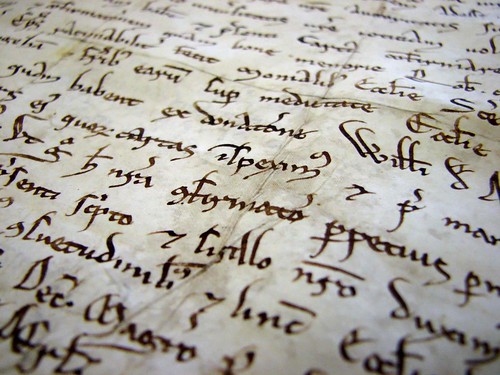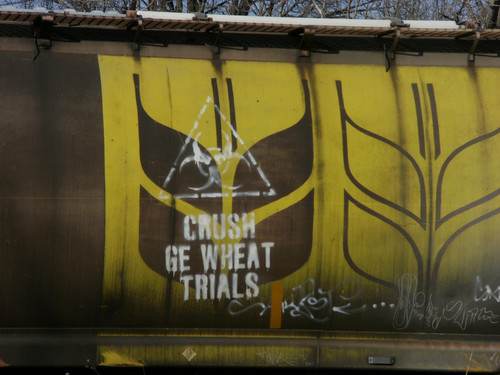
One of the problems with economic hardships, climate extremes and international turmoil is the opportunity this presents to corporations to have (their) unscrupulous legislators pass nasty bills. No one has much time to think about the consequence of transferring wealth to the banks, let alone the acceptance of cloned meat or draconian food safety bills.
Decisions are being made for us, in regard to what is substantially equivalent, what is morally acceptable, and what is safe. Not only is the impetus for these decisions driven by corporate agriculture and "proven" safe by scientist in their employ, but it is determining the shape of our food landscape precisely because we have little choice - it is invisible. We have organic, we have known (witnessed) food.
But farmers choices for feed, safe location, seed and small scale equipment are thinning too. Because of the nature of farming's precious resources (soil, seed, knowledge) the stage is being set for industrial agriculture and it makes "natural" farming more onerous, makes the journey along the "cowpathes" harder to find. Our edges, our boundaries are being pushed.
Its remarkable to me that there is little outcry regarding the sale of unlabeled cloned meat. If I was a religious adherent I'd want to press for freedom of religion - what a violation for this and unlabeled transgenic food. To know what I put in my temple, should be a fundamental choice of conscious.
I wish the impenetrable resignation and acquiescence that seems to have befallen the masses would lift in regard to real food security. It underpins most, if not all, our planetary dissolution. Once disconnected from the means for independent sustenance, it will be a long and difficult road back.



2 comments:
Actually, just as a technical point, but a very very important one. Cloned meat is not at all the same as meat that has transgenic manipulation. Not even close.
As for cloning, cloning is taking the exact same thing that was born and making it a twin after the fact. That is all.
Every single human being is actually a clone as is every mammal! Our diploid/haploid reproduction process means we all start out as 2, and usually become one, absorbing the extra haploid bits into ourselves.
Cloning is actually a perfectly okay process if done only to mammals that have been naturally created. It is when we manipulate DNA to create something never existed in nature that we have problems especially when it can reproduce.
Cloning, the word, freaks people out and I still can't understand it. Most of the veggies that are self pollinating are very close to clones. Dandelions are clones. Lots of things reproduce naturally by cloning. It is natural and entirely normal.
Personally, I'm very glad we have the ability to clone. When people get smarter about their environment we have a real chance to bring back that which we destroyed through cloning.
I agree that a cloned animal may not be transgenic although it is possible - I didn't equate them other than then to have them in my list of "stuff thats gotta be labeled, or banned from our food supply.
Cloning isn't an after the fact twin, that sounds a bit glossy. Mammals have diploid (2 copies of their chromosomes) except for their sex chromoses, which are haploid. Upon union with another haploid sex cell the new diploid cell begins its miraculous mitosis. Wheres the clone (did you mean "potential clone"?
Sheep, pigs, cows chicken...build up resistences, adapt to their environments and pass on these genes. A cloned animal has very limited, very controled, centralized genes. Stranger genes to its ecosystem.
I don't want to eat them and think they should be labeled. homologous not clone
Post a Comment